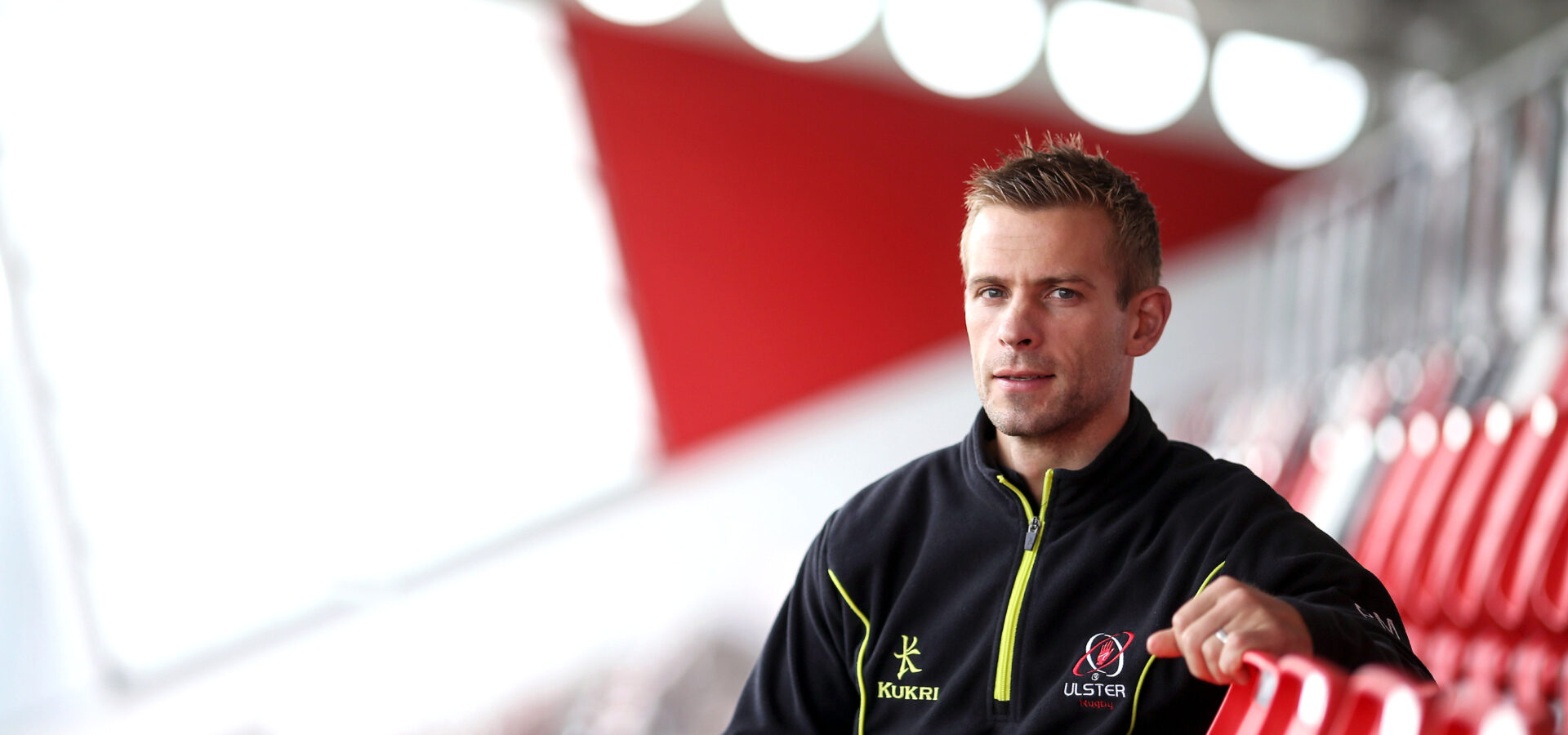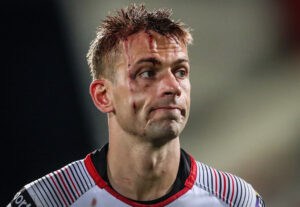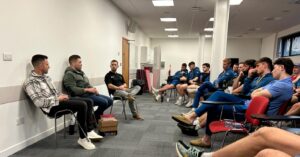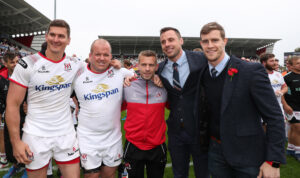News
A New Purpose

Paul Marshall was recently appointed as Rugby Players Ireland’s Player Development Manager (PDM) for Ulster Rugby. Here he shares the experience of his own transition and how he hopes to empower players for success.
When I finished playing, I wasn’t ready to leave sport. To be honest, I wanted to keep going but the circumstances wouldn’t allow for it. For months after I was released, I harboured a hope that I might get called back in again, but it wasn’t to be. Even though I knew it was coming, retirement caught me on the hop a bit.
Being in my 30s and married with two children immediately put a different perspective on things. I had a responsibility to other people, my family. While I had done some work with Rugby Players Ireland’s Pamela Gilpin, I thought I’d have plenty of time to do some work experience. Unfortunately, one of my kids became unwell which put everything on the backburner. There was no time to test the waters.
Looking back, I’m sorry I didn’t sample the working world a bit more when I was in my 20s. I left it all a wee bit too late. It was such a wasted opportunity. Back then I could probably have knocked on quite a few doors and got into organisations that interested me. I also would have had the time to see how they operated over a few continuous weeks rather than going in for a day when they’re all on their best behaviour.

Even though I was unsure about it, I ended up training to be a PE teacher in the months after I finished up. I felt it might help pay the bills a bit sooner and would always be something to fall back on. While I’m glad to have had a sense of purpose, it was still an uncertain period. I needed to recognise that I was taking the next step in my career, not the final one.
I do believe a player can take greater control of the inevitable transition by chipping away at something alongside their playing career. No matter how big or small their commitment might be, it takes an element of the unknown out of the equation.
It can be hard to get messages through to players though, and as a former player I understand that. Some are young lads looking to break into the team. Others are more established in the squad and don’t want to deter from that. Thankfully I’m familiar with the Ulster Rugby environment and I’m happy to be onsite, having those little conversations in the corridor in the hope they turn into bigger ones.

While I don’t have the same wealth of experience of the wider PDM team, I like to think I have a good sense of how a player thinks or feels in certain situations. To have that in addition to the expertise of my colleagues brings a nice balance to what we do.
At the same time, I’m conscious that every club and every culture is different, so each PDM has to find their own way to operate. As a former player I have my own understanding of the dynamics of the environment while having trained as a PE teacher, I’m able to use some of the educational tools and techniques I’ve learned to help the players.
Having been in this role a few months, I’ve become very aware that players go on very different journeys. It might seem obvious but as a PDM, you have to understand that there’s no one size fits all approach. I have the benefit of having experienced the transition but that doesn’t mean what I did is right or wrong either. It was simply right for me at the time.
That’s not to say it made it any easier. When you’re in a team environment you’re ingrained in whatever is happening. When that finishes you feel isolated because all the structure around your day, week or year completely disappears. In sport, players and management come and go, so your importance to the organisation can be short lived.
I still remember being kicked out of the WhatsApp group by Darren Cave, who’s my good friend. I just felt like, ‘right, that’s that then.’ There was a sense of finality to it because you’re not part of the banter that goes on anymore. You’re on the outside. It was a swift boot but maybe that’s best.

When the end came into sight, I reached out some of my former teammates. Ian Humphreys finished up the year before me and was very helpful with the kind of conversations I probably wasn’t comfortable having in the dressing room. He tipped me off about all the change – income, identity, day-to-day life. There’s even a shift in family dynamic because your entire schedule is uprooted.
I remember him telling me that as much as I might miss playing, I wouldn’t miss the uncertainty of going in every week and wondering whether I’ll be picked in the team or not. Don’t get me wrong, I wouldn’t change a thing about my career. The incredible highs and the disappointing lows are part of the package. That’s the stuff we buy into as sportspeople. But Ian helped me to see some of the positives I was missing, like being able to lead a steadier life.

Personally, the lows always felt a wee bit tougher because I dwelled on them a little longer. Anytime I achieved anything I was always looking to the next milestone. Once you get your first cap, it’s about getting the second. I’m sorry I didn’t enjoy certain moments to a greater extent because I was always looking beyond them.
I don’t think any player who has aspirations in the game can ever really sit still. There’s massive opportunity for players to win things these days and forge out a great career. As a PDM, I have to understand that. Yet I also know how having the off-field stuff sorted can ultimately help them get to where they want to go.
Now that I’m on this side of the fence, I still have my ambitions. And I’m in this role to help players fulfil their own.
Back to NewsLatest Posts

Player Development Programme Review

Finding Hope

Highlights: February 2025
















